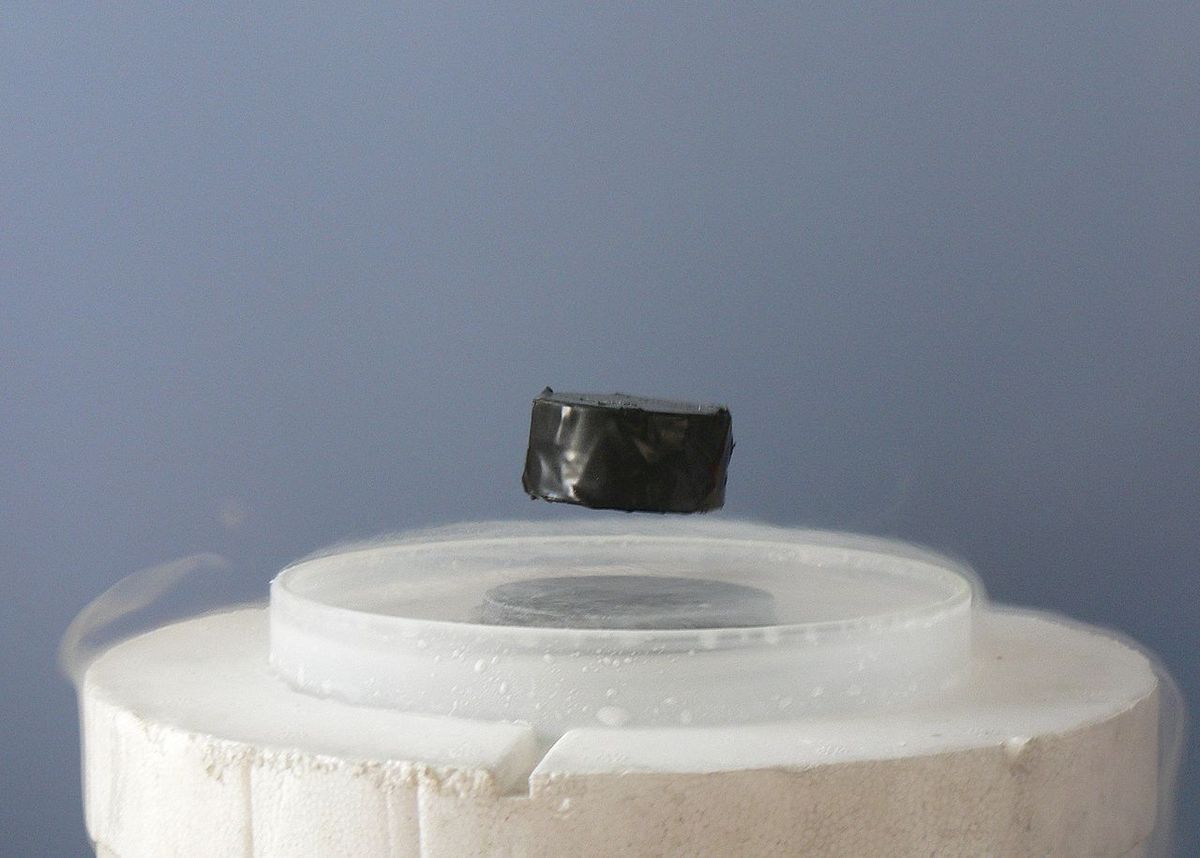Is LK-99 a superconductor “breakthrough?”
Two weeks ago, South Korean researchers made headlines with their announcement of a creation called LK-99.

A few minutes every morning is all you need.
Stay up to date on the world's Headlines and Human Stories. It's fun, it's factual, it's fluff-free.
The backstory: Superconductor technology is all about using materials that can conduct electricity without any resistance, which means they can transmit power without losing any energy. Recently, there's been some major buzz in the stock markets of South Korea and China because of some new claims about a groundbreaking development in this field.
Two weeks ago, South Korean researchers made headlines with their announcement of a creation called LK-99. They said it's the world's first superconductor that works at room temperature and normal pressure.
More recently: Earlier this week, a video showed Chinese scientists replicating the South Korean team's findings. This video went viral and added to the buzz surrounding LK-99.
Now, on the international stage, analysts and experts are divided in their opinions. Some are thrilled, calling it a significant leap in condensed matter physics with the potential to revolutionize various industries, while others are skeptical, criticizing the Korean team's research for not providing enough details to be convincing. But even though there’s an air of skepticism about the development, it’s an exciting enough prospect that researchers around the world are currently trying to replicate the experiment.
The development: It seems that, despite these uncertainties, investors are optimistic and continuing to put their money into industry-related stocks and companies. Just take a look at the numbers – Korean companies Duksung, Sunam and Shinsung Delta Tech saw their stock prices surge by almost 30% on Wednesday. Similarly, in China, Jiangsu Fasten and Henan Zhongfu Industry have climbed by 10% in the same trading period. Meanwhile, across the ocean, American Superconductor saw a 60% surge in its stock price on Tuesday, even though it’s not clear that’s directly related to the new Korean research.
Investors are betting on LK-99’s potential impact on various industries like power generation, transportation and chip manufacturing. That is if it really works the way these researchers say it does, and it can be commercially manufactured. But for now, there's no indication that these companies are actively working on developing LK-99.
Key comments:
"If LK-99 is proved to be true and able to be mass-produced, it would be disruptive for a wide range of industries," said Nick Cheng, an analyst at Jefferies Financial Group, in a note.
"They come off as real amateurs," said Michael Norman, a theorist at Argonne National Laboratory. "They don't know much about superconductivity and the way they've presented some of the data is fishy."
“If true, the discovery would be one of the biggest ever in condensed matter physics and could usher in all sorts of technological marvels,” wrote a report in Science.




Comments ()